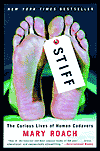Finally My Dad Forwards Me a GOOD Article
p.s. I'm returning to the blogosphere this Sunday!
Hard Case: Job Market
Wanes for U.S. Lawyers
Growth of Legal Sector
Lags Broader Economy;
Law Schools Proliferate
By AMIR EFRATI
September 24, 2007; Page A1
A law degree isn't necessarily a license to print money these days.
For graduates of elite law schools, prospects have never been better. Big law firms this year boosted their starting salaries to as high as $160,000. But the majority of law-school graduates are suffering from a supply-and-demand imbalance that's suppressing pay and job growth. The result: Graduates who don't score at the top of their class are struggling to find well-paying jobs to make payments on law-school debts that can exceed $100,000. Some are taking temporary contract work, reviewing documents for as little as $20 an hour, without benefits. And many are blaming their law schools for failing to warn them about the dark side of the job market.
1
The law degree that Scott Bullock gained in 2005 from Seton Hall University -- where he says he ranked in the top third of his class -- is a "waste," he says. Some former high-school friends are earning considerably more as plumbers and electricians than the $50,000-a-year Mr. Bullock is making as a personal-injury attorney in Manhattan. To boot, he is paying off $118,000 in law-school debt.
"Unfortunately, some find the practice of law is not for them," Seton Hall's associate dean, Kathleen Boozang, said through a spokeswoman. "However, it is our experience that a legal education is a tremendous asset for a variety of professional paths."
A slack in demand appears to be part of the problem. The legal sector, after more than tripling in inflation-adjusted growth between 1970 and 1987, has grown at an average annual inflation-adjusted rate of 1.2% since 1988, or less than half as fast as the broader economy, according to Commerce Department data.
Some practice areas have declined in recent years: Personal-injury and medical-malpractice cases have been undercut by state laws limiting class-action suits, out-of-state plaintiffs and payouts on damages. Securities class-action litigation has declined in part because of a buoyant stock market.
On the supply end, more lawyers are entering the work force, thanks in part to the accreditation of new law schools and an influx of applicants after the dot-com implosion earlier this decade. In the 2005-06 academic year, 43,883 Juris Doctor degrees were awarded, up from 37,909 for 2001-02, according to the American Bar Association. Universities are starting up more law schools in part for prestige but also because they are money makers. Costs are low compared with other graduate schools and classrooms can be large. Since 1995, the number of ABA-accredited schools increased by 11%, to 196.
Evidence of a squeezed market among the majority of private lawyers in the U.S., who work as sole practitioners or at small firms, is growing. A survey of about 650 Chicago lawyers published in the 2005 book "Urban Lawyers" found that between 1975 and 1995 the inflation-adjusted average income of the top 25% of earners, generally big-firm lawyers, grew by 22% -- while income for the other 75% actually dropped.
According to the Internal Revenue Service, the inflation-adjusted average income of sole practitioners has been flat since the mid-1980s. A recent survey showed that out of nearly 600 lawyers at firms of 10 lawyers or fewer in Indiana, wages for the majority only kept pace with inflation or dropped in real terms over the past five years.
The news isn't any better for the 14% of new lawyers who go into government or join public-interest firms. Inflation-adjusted starting salaries for graduates who go to work for public-interest firms or the government rose 4% and 8.6%, respectively, between 1994 and 2006, according to the National Association for Law Placement, which aggregates graduate surveys from law schools. That compares with at least an 11% jump in the median family income during the same period, according to the Census Bureau. Graduates who become in-house company lawyers, about 9%, have fared better: Their salaries rose by nearly 14% during the same period.
Many students "simply cannot earn enough income after graduation to support the debt they incur," wrote Richard Matasar, dean of New York Law School, in 2005, concluding that, "We may be reaching the end of a golden era for law schools."
Meanwhile, the prospects for big-firm lawyers are growing richer. While offering robust minimum salaries, those firms are paying astronomical amounts to their stars.
Now, debate is intensifying among law-school academics over the integrity of law schools' marketing campaigns. Defenders argue that the legal profession always has been openly and proudly a meritocracy: Top entrance-exam scores help win admittance to top schools where top students win jobs at top firms. Even the system that is used to issue law-school grades -- a curve that pits student against student -- reflects the law profession's competitiveness.
David Burcham, dean of Loyola Law School in Los Angeles, considered second-tier, says the school makes no guarantees to students that they will obtain jobs. He says it is problematic that big firms only interview the top of the class, "but that's the nature of the employment market; it's never been different."
For the majority of students and alumni, he says, Loyola "turned out to be a good investment."
Yet economic data suggest that prospects have grown bleaker for all but the top students, and now a number of law-school professors are calling for the distribution of more-accurate employment information. Incoming students are "mesmerized by what's happening in big firms, but clueless about what's going on in the bottom half of the profession," says Richard Sander, a law professor at the University of California-Los Angeles who has studied the legal job market.
"Prospective students need solid comparative data on employment outcomes, [but] very few law schools provide such data," adds Andrew Morriss, a law professor at the University of Illinois who has studied the market for new lawyers.
Students entering law school have little way of knowing how tight a job market they might face. The only employment data that many prospective students see comes from school-promoted surveys that provide a far-from-complete portrait of graduate experiences. Tulane University, for example, reports to U.S. News & World Report magazine, which publishes widely watched annual law-school rankings, that its law-school graduates entering the job market in 2005 had a median salary of $135,000. But that is based on a survey that only 24% of that year's graduates completed, and those who did so likely represent the cream of the class, a Tulane official concedes.
On its Web site, the school currently reports an average starting salary of $96,356 for graduates in private practice but doesn't include what percentage of graduates reported salaries for the survey.
"It's within most individuals' nature to keep that information private, unless it's a high amount," says Carlos Dávila-Caballero, assistant dean for career development at Tulane, who adds that his office tells prospective students to use the median figure as a guide because starting salaries vary widely.
Academics who have studied new-lawyer salaries say that the graduate surveys of many law schools are skewed by higher response rates from the most successful students. The National Association for Law Placement, which aggregates and publishes national data based on those surveys, concedes that it can't vouch for their accuracy. "We can't validate the figures; we have to rely on schools to report to us accurately," says Judy Collins, NALP's director of research.
A prospective student studying NALP data might conclude that the study of law is a sure path to financial security. For 2006 graduates who entered private practice, or nearly 60%, NALP shows a national median salary of $95,000, a rise of 40%, adjusted for inflation, from 1994 graduates.
The NALP data also show that the percentage of graduates employed in private practice has been steady, fluctuating between 55% and 58% for more than a decade. But in law schools' self-published employment data, "private practice" doesn't necessarily mean jobs that improve long-term career prospects, for that category can include lawyers working under contract without benefits, such as Israel Meth. A 2005 graduate of Brooklyn Law School, he earns about $30 an hour as a contract attorney reviewing legal documents for big firms. He says he uses 60% of his paycheck to pay off student loans -- $100,000 for law school on top of $100,000 for the bachelor's degree he received from Columbia University.
A glossy admissions brochure for Brooklyn Law School, considered second-tier, reports a median salary for recent graduates at law firms of well above $100,000. But that figure doesn't reflect all incomes of graduates at firms; fewer than half of graduates at firms responded to the survey, the school reported to U.S. News. On its Web site, the school reports that 41% of last year's graduates work for firms of more than 100 lawyers, but it fails to mention that that percentage includes temporary attorneys, often working for hourly wages without benefits, Joan King, director of the school's career center, concedes.
Ms. King says she believes the figures for her school accurately represent the broader graduating class. She says the number of contract attorneys is "minimal" but declined to give a number.
The University of Richmond School of Law in the last couple of years started to be more open about its employment statistics; it now breaks out how many of its grads work as contract attorneys. Of 57 2006 graduates working in private practice, for example, seven were contract employees nine months after graduation. Schools "should be sharing more information than they are now," says Joshua Burstein, associate dean for career services who put the changes in place. "Most people graduating from law school," he says, "are not going to be earning big salaries."
Adding to the burden for young lawyers: Tuition growth at law schools has almost tripled the rate of inflation over the past 20 years, leading to higher debt for students and making starting salaries for most graduates less manageable, especially in expensive cities. Graduates in 2006 of public and private law schools had borrowed an average of $54,509 and $83,181, up 17% and 18.6%, respectively, from the amount borrowed by 2002 graduates, according to the American Bar Association.
Students taking on such debt may feel reassured by incessant press reports of big firms scrambling to hire and keep associates. Making headlines this year was a bump up in big-firm starting salaries to $160,000 from $145,000 in many cities.
And indeed, some law graduates of lower-tier schools do find high-paying private-practice law jobs. In recent years big firms have boomed thanks in part to the globalization of business and Wall Street deal making; firms have been casting a wider net for new lawyers, though they still generally restrict their recruiting at lower-tier schools to students at the very top of the class or on the law review. Some students have leads on a job at a family member's or friend's practice.
But just as common -- and much less publicized -- are experiences such as that of Sue Clark, who this year received her degree from second-tier Chicago-Kent College of Law, one of six law schools in the Chicago area. Despite graduating near the top half of her class, she has been unable to find a job and is doing temp work "essentially as a paralegal," she says. "A lot of people, including myself, feel frustrated about the lack of jobs," she says.
Harold Krent, Chicago-Kent's dean, said it's not uncommon for new lawyers to wait a few months to more than a year to find a job that's a good fit. He added that there is a "small spike" in employment after his school's grads receive their bar-exam results, several months after graduation, because some firms wait until then before hiring.
The market is particularly tough in big cities that boast numerous law schools. Mike Altmann, 29, a graduate of New York University who went to Brooklyn Law School, says he accumulated $130,000 in student-loan debt and graduated in 2002 with no meaningful employment opportunities -- one offer was a $33,000 job with no benefits. So Mr. Altmann became a contract attorney, reviewing electronic documents for big firms for around $20 to $30 an hour, and hasn't been able to find higher-paying work since.
Some un- or underemployed grads are seeking consolation online, where blogs and discussion boards have created venues for shared commiseration that didn't exist before. An anonymous writer called Loyola 2L, purportedly a student at Loyola Law School, who claims the school wasn't straight about employment prospects, has been beating a drum of discontent around the Web in the past year that's sparked thousands of responses, and a fan base. ("2L" stands for second-year law student.) Some thank "L2L" for articulating their plight; others claim L2L should complain less and work more. Loyola's Dean Burcham says he wishes he knew who the student was so he could help the person. "It's expensive to go to law school, and there are times when you second-guess yourself as a student," he says.
Some new lawyers try to hang their own shingle. Matthew Fox Curl graduated in 2004 from second-tier University of Houston in the bottom quarter of his class. After months of job hunting, he took his first job working for a sole practitioner focused on personal injury in the Houston area and made $32,000 in his first year. He quickly found that tort-reform legislation has been "brutal" to Texas plaintiffs' lawyers and last year left the firm to open up his own criminal-defense private practice.
He's making less money than at his last job and has thought about moving back to his parents' house. "I didn't think three years out I'd be uninsured, thinking it's a great day when a crackhead brings me $500."
--Mark Whitehouse contributed to this article.
Write to Amir Efrati at amir.efrati@wsj.com4











0 Comments:
Post a Comment
<< Home